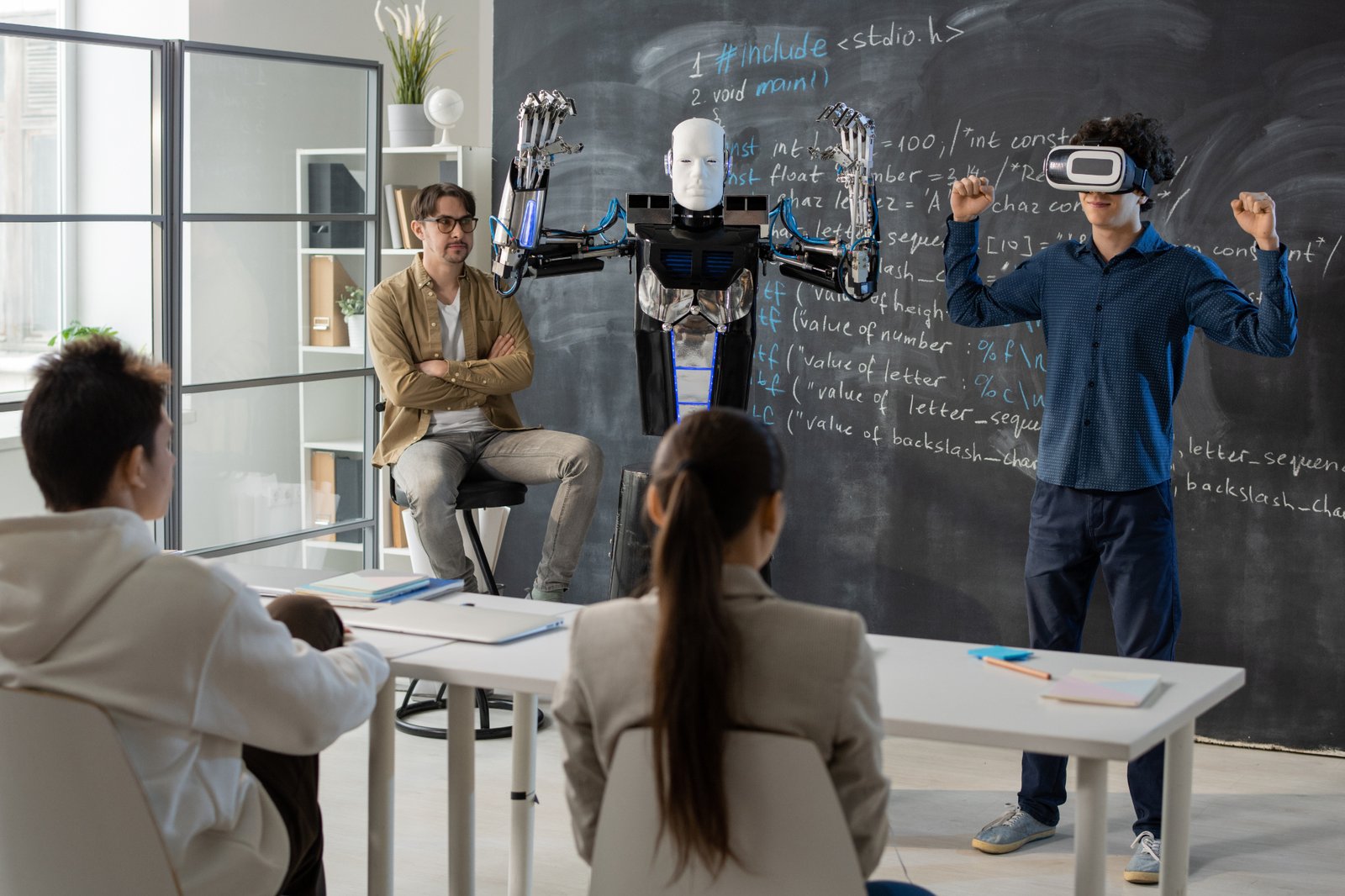AI in Real Estate: Transforming the Landscape of Buying, Selling, and Renting

Introduction
Imagine a future where AI seamlessly manages our daily lives—from diagnosing illnesses to driving cars. While these advancements hold immense promise, they also present ethical dilemmas. How do we ensure technology evolves responsibly, safeguarding society’s values? This article delves into AI ethics, balancing innovation with moral responsibility.
1. The Promise and Peril of AI
- AI’s transformative potential is immense, but with great power comes great responsibility.
Transformative Potential
- Healthcare: AI-driven diagnostics and personalized treatments can revolutionize patient care.
- Automotive Industry: Autonomous vehicles aim to reduce accidents and cut emissions by optimizing traffic.
- Education: Personalized AI learning tools enhance accessibility and equity.
Ethical Challenges
- Bias and Discrimination: Skewed training data can perpetuate systemic biases, leading to unfair outcomes.
- Privacy Concerns: AI’s ability to analyze vast amounts of personal data raises significant privacy risks.
- Autonomy and Accountability: Determining responsibility when AI systems fail remains a complex issue.
“AI must be fair, transparent, and accountable to preserve human dignity and trust.”
2. The Role of Regulation
Effective governance is essential to channel AI development responsibly while safeguarding societal interests.
Key Regulations
- GDPR: Sets global benchmarks for data privacy and security.
- Algorithmic Accountability Act: Proposes U.S. companies evaluate algorithms for bias and accuracy.
Challenges
- Global Disparities: Regulatory inconsistencies hinder international cooperation.
- Technological Pace: Regulations often lag behind rapidly evolving AI technologies.
3. AI in the Workforce: Boon or Bane?
The integration of AI into the workforce has profound implications for jobs and economic equity.
Job Market Dynamics
- Automation vs. Job Creation: Routine tasks may be replaced, but new tech-driven roles will emerge.
- Reskilling Imperatives: Education and training programs are vital to prepare workers for AI-driven industries.
Fair Labor Practices
Promoting ethical employment standards ensures fair compensation and working conditions amid AI-driven disruptions.
4. Towards an Ethical AI Future
Creating an ethical AI landscape requires collaboration and accountability.
Stakeholder Collaboration
- Cross-disciplinary Dialogue: Engaging ethicists, technologists, and policymakers fosters comprehensive solutions.
- Public Awareness: Educating society about AI’s impact democratizes decision-making processes.
Ethical Development Principles
- Inclusive AI: Address biases by designing systems that reflect diversity.
- Transparency: Explainable AI fosters trust and facilitates accountability.
Conclusion
Balancing innovation and ethics in AI is a societal mandate. As we build a tech-driven future, embedding ethics in AI ensures technology enhances human life rather than hindering it.
“The ultimate test of progress lies in our ability to align ethics with technological advancements.”
Continue reading
Admin
December 31, 2024


